Innovation
Press Release: Growing Uganda’s Next Generation of Technology Leaders: Applications Open for Cutting-Edge Student Training Program
Published
4 years agoon
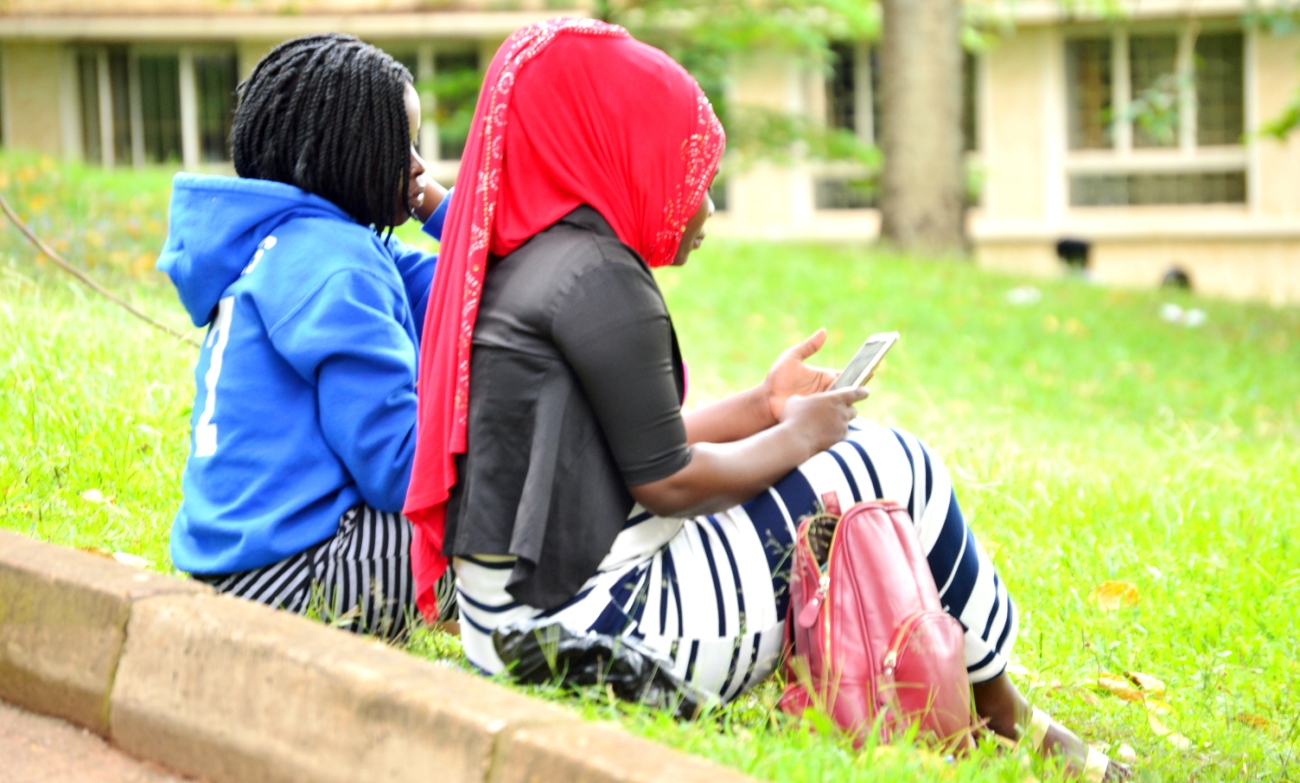
May 3, 2021—The Marconi Society today announced that applications are open for the Celestini Program, a workforce development and STEM education initiative that pairs underrepresented students with training, mentorship, funding, and meaningful opportunities to use new technologies to make a difference in their local communities.
This project is a partnership with the Research Education Network for Uganda (RENU), a cooperative research and education network of Ugandan institutions, ResilientAfrica Network (RANLab), a research and innovation partnership of 23 African universities that nurtures and scales innovations from its member organizations, and Network Startup Resource Center (NSRC), a global leader in network technology and workforce development.
“We envision a future where practitioners of communications technology are as diverse as the population they need to serve,” says Samantha Schartman-Cycyk, Executive Director of the Marconi Society. “Through this partnership, we bring together decades of experience in networks, mentorship, and workforce training to provide hands-on experience to students who will define the future of STEM.”
“Our vision is to create a national research and education environment in which Uganda’s researchers and scholars effectively contribute to knowledge creation, dissemination and application in solving society’s problems through local and international collaboration,” says Nicholas Mbonimpa, RENU’s Chief Executive Officer. “ This partnership provides a very good opportunity for students and researchers of our member institutions to acquire skills and develop their concepts and ideas into solutions for our community.”
“Our mission is to strengthen resilience in Africa through University-led local innovative solutions using evidenced-based approaches,” says Professor William Bazeyo, RAN Chief of Party/Lab Director. “This partnership is yet another opportunity for our students, innovators, and researchers to positively contribute to addressing diverse and complex challenges in the communities in which we live and serve. As we implement this project activities, we shall also largely leverage RAN’s innovation management expertise and experience to grow community members including ICT faculty and students’’, Prof. Bazeyo added.
The program consists of two tracks:
- The eduroam: Expanding Remote Access to Information track will provide job training and opportunities in network services management while vastly expanding student and faculty access to university resources on- and off-campus.
- The LoRaWAN: Sensor Networks Solving Local Problems track offers students the chance to learn about and use the cutting-edge Long-Range Wide Area Network technology, exploring the solutions this network could offer to community problems.
All student applicants must be enrolled at a RENU member university to be considered.
eduroam: Expanding Remote Access to Information
Applications due May 28, 2021
This workforce development initiative is for undergraduate students entering their final year of university and provides the opportunity to gain skills in identity management and database administration, mentorship from global leaders in Information and Communications Technology (ICT), and post-program engagement managing their university’s rollout of eduroam.
By deploying and maintaining this technology across universities in Uganda, this project aims to develop a more robust infrastructure of interconnected higher education institutions by widening access to educational resources and communications. The program runs for eight weeks, after which students will be required to support the ICT team of their university during their final year to manage the ongoing administrative and technical responsibilities of the service, possibly leading to future jobs in these areas.
Students must be enrolled in and pursuing a Bachelor’s degree in computer science, computer engineering, software engineering, or telecommunications engineering at the time of application.
Applications open May 1 and are due by the end of the day, May 28, EAT. The program runs for eight weeks, from Monday, June 21 through Friday, August 20 . Participating students must attend an on-site training in Kampala at the RENU Secretariat.
LoRaWAN: Sensor Networks Solving Local Problems
Applications due June 18, 2021
This initiative is for graduate (Master’s or PhD) student proposals to use a LoRaWAN (Long-Range Wide Area Network) environment to create technology proofs of concept that address local community needs, with guidance from mentors who are global leaders in ICT, technical and equipment support from NSRC, and funding up to $5,000 per project from the Marconi Society.
NSRC will partner with the International Centre for Theoretical Physics (ICTP) in Italy to provide technical support, training materials, and assist Ugandan faculty researchers and students with procuring sensors and LoRaWAN gateway equipment to enable sustainable deployments in the field.
The goal of this track is to allow students to get hands-on experience using new technology while partnering with the community and thinking creatively about user-focused applications. In order to ensure community input, each project should include collaboration with at least one community-based organization.
Applications open May 1 and are due by the end of the day, June 18, EAT. The program runs through the 2021–2022 academic year, beginning August 1, 2021. It is designed to be compatible with a full course load. While student applicants are not required to be enrolled in technical programs, it is suggested that applicants outside of ICT-based fields enlist a collaborator with the skills to use LoRaWAN technology.
History of the Program
Celestini: Uganda is an extension of the Celestini Program, the Marconi Society’s experiential learning initiative developed by its Paul Baran Young Scholars. It aims to create a strong and diverse engineering profession by pairing students with resources to gain hands-on technical experience while pursuing projects that address community needs.
Past student-led projects include using sensing technology to monitor air quality in India, addressing water waste in Colombia using Internet of Things technology and machine learning, and increasing civic engagement in Rwanda through a mobile application.
The Celestini Program operates using a partnership model, wherein a local institution collaborates with leaders in the Marconi Society’s network to empower students to use new technologies to address local problems with guidance from leaders in ICT.
About the Marconi Society
The Marconi Society envisions a world in which everyone can create opportunity through the benefits of connectivity. The organization celebrates, inspires, and connects individuals building tomorrow’s technologies in service of a digitally inclusive world.
About the Network Startup Resource Center (NSRC)
The Network Startup Resource Center (NSRC) works directly with the indigenous network engineers and operators who develop and maintain the Internet infrastructure in their respective countries and regions by providing technical information, engineering assistance, training, donations of networking books, equipment and other resources.
About Research Education Network for Uganda (RENU)
Research and Education Network for Uganda (RENU) is a nonprofit National Research and Education Network (NREN) that offers affordable services uniquely designed to enable collaboration among its member institutions and their global partners. The network is a cooperatively owned and community-driven service provider that helps to facilitate research and education networking among its member institutions.
About ResilientAfrica Network (RANLab)
The ResilientAfrica Network (RAN), funded by USAID, is a research and innovation partnership of 23 Universities across 16 African countries led by Makerere University. RAN strengthens and builds the resilience of African communities by identifying, nurturing and scaling cross disciplinary innovations to respond to community most pressing challenges.
Support
The Celestini Program is supported by the Thornton Tomasetti Foundation.
Contact:
Caroline Tuhwezeine
Communications Officer, RENU
communications[at]renu.ac.ug
Harriet Adong
Director of Communications, Learning & Knowledge, RANLab
hadong[at]ranlab.org
Taia Pandolfi
Marketing & Communications Manager, the Marconi Society
taia[at]marconisociety.org
You may like
-
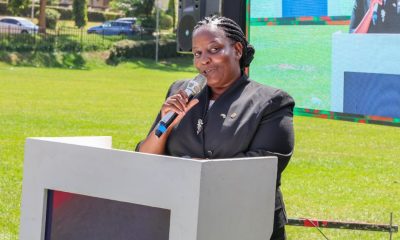

Emorimor Calls for Makerere to Upgrade Parenting Course
-
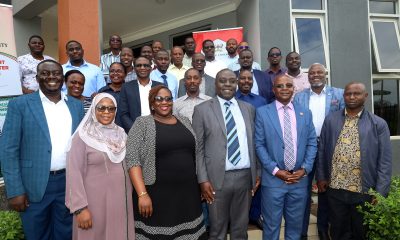

Uganda Deepens Economic Governance with Training on Regulatory Cost-Benefit Analysis
-
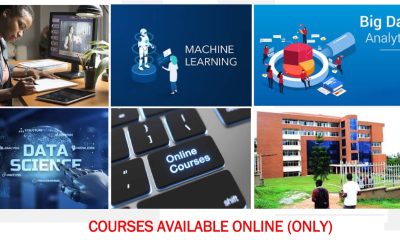

CoCIS CIPSD Online Short Courses Jul-Nov 2025
-


UVCF Makes Case for HEAC Programme
-


Mastercard Foundation Board pays its inaugural visit to Makerere University
-
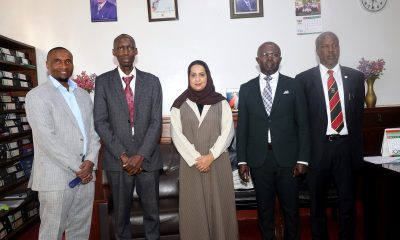

Mak CEES discusses partnership with King Salman Global Academy for the Arabic Language
Agriculture & Environment
NbS4Tea Project Team Makes Great Progress, Deploys Drones for Data Collection
Published
6 days agoon
June 24, 2025
****Funded by the Danish Fellowship Centre under Denmark’s Ministry of Foreign Affairs, NbS4Tea is a five-year initiative aimed at enhancing climate resilience and tea productivity in Uganda.
Launch of drones for data collection
The Nature-based Solutions for Tea (NbS4Tea) project has registered a significant milestone with the successful deployment of drones to improve environmental and agricultural data collection.
On 19th June 2025, the project team officially launched the drones at the Rwebitaba Tea Research Centre in Kyenjojo District, the project’s main research hub. The launch event included hands-on training sessions by Mr. Timothy Mutungi, a certified Remote Sensing Drone Pilot. Mr. Mutungi provided detailed instruction on drone operation, safety procedures, and data acquisition techniques specifically tailored to the project’s goals. The training was attended the core NbS4Tea researchers as well as students supported by the project.

By utilizing drone technology, the team will be able to capture high-resolution imagery and gather critical environmental data across vast tea-growing areas. This will enable more precise assessments of biodiversity, soil health, water use, and overall ecosystem services. The valuable insights generated will guide the development of sustainable, nature-based agricultural practices with the potential for widespread adoption throughout the tea industry.
About the NbS4Tea Project
NbS4Tea is a five-year initiative aimed at enhancing climate resilience and tea productivity in Uganda. Funded by the Danish Fellowship Centre under Denmark’s Ministry of Foreign Affairs and led by Dr Emmanuel Arthur from Aarhus University, the project is being implemented through a consortium of Ugandan and Danish institutions namely: Makerere University, the National Agricultural Research Organization (NARO), Uganda, Uganda Tea Association, Aarhus University, Denmark, and Kick-start International.

The primary objective of the project is to sustainably close the tea yield gap in Uganda by developing research-driven, nature-based solutions that enhance the climate resilience of tea production systems. This involves identifying climate-resilient tea varieties, integrating tea prunings and banana by-products, utilizing nitrogen-fixing agroforestry trees, and improving irrigation management. The approach emphasizes socio-economic feasibility, capacity building in research, and a market-oriented, multi-stakeholder collaboration to ensure both environmental and economic sustainability.
At Makerere University, the project is coordinated by Dr Alex Nimusiima from the Department of Geography, Geo-Informatics and Climatic Sciences at CAES. Other Project members are; Dr Grace Nakabonge from the Department of Forestry, Biodiversity and Tourism; Dr Prossy Nakawuka from the Department of Agricultural and Bio-systems Engineering; Dr Twaha Ali Basamba from the Department of Agricultural Production; and Dr Alice Turinawe from the Department of Agribusiness and Natural Resource Economics.

Specific objectives
- Identify and quantify climate change impacts on tea yield and quality based on historical and newly obtained data and novel data mining methods.
- Screen, select and recommend tea varieties adapted to abiotic (drought and heat) and biotic stresses (diseases and pests).
- Develop new knowledge on the potential of local waste biomass (tea prunings, banana pseudostems and peels) as soil amendments- mulch, compost, biochar, to recycle nutrients, improve soil fertility, increase carbon sequestration and alleviate drought.
- Reveal NbS through agroforestry combined with organic mulch, irrigation and resilient tea varieties that increase biodiversity and tea yield.
- Innovate new methods to enhance tea production under climate change through rainwater harvest and climate-smart irrigation infrastructure.
- Empower vulnerable groups (women, youth, and people with disabilities) in tea production and processing to ensure multi-actor involvement and socio-economic benefit outreach of the proposed NbS in tea cultivation and production.
- Identify export market strategies for NbS tea products, aligned with consumer preferences.

Progress thus far
Launched in January 2024, the project, organized in five work packages, has registered significant progress. Each of the work packages listed below supports one PhD student and one Masters’ student. The PhD students are: i) Mr. Adiga Hassan from the Department of Geography, Geo-Informatics and Climatic Sciences at CAES conducting research under work package 1; ii) Ms. Sarah Namayengo from the Department of Forestry, Biodiversity and Tourism conducting research under work package 2; Ms. Vivian Namutebi from the Department of Soil Science and Land Use Management undertaking research on work package 3; Mr. Keneth Chelimo from the Department of Agricultural and Biosystems Engineering conducting his research under work package 4; and Ms. Moreen Asasira from the Department of Agribusiness and Natural Resource Economics focusing on work package 5. The Masters students are: i) Ms. Evelyn Katasi from the Department of Environmental Management at CAES (work package 1), Mr. Vereriano Turyahebwa from Department of Forestry, Biodiversity and Tourism (work package 2); Mr. Ben Okurut from the Department of Soil Science and Land Use Management (work package 3); Mr. Augustine Okot from the Department of Agricultural and Biosystems Engineering (work package 4); and Mr. Augustine Kigozi from the Department of Agribusiness and Natural Resource Economics (work package 5)

Work packages and achievements registered
Work Package 1: Climate change impacts on tea yield and quality – Headed by Dr. Alex Nimusiima
This work package centres on the analysis of historical and projected climate conditions in the study area. It examines how current climate patterns influence tea production, as well as the potential effects of future climate change on tea yield and quality.
Progress
i) A household survey assessing the socio-economic status of tea farmers and the effects of climate variability on their livelihoods has been completed.
ii) The collected data has been cleaned, and the Masters student supported under this work package is currently writing her thesis based on the survey findings.
iii) A historical climate analysis of the study area has been conducted by the PhD student, who is now preparing a manuscript.

Work Package 2: Screening & selecting tea genotypes for resilience to abiotic and biotic stresses – Headed by Assoc. Prof. Grace Nakabonge
This work package focuses on evaluating existing tea genotypes for their resistance to pests and diseases, using chlorophyll fluorescence imaging as a diagnostic tool.
Progress
i) A screen house has been constructed to serve as the experimental site.
ii) Germplasm from two tea varieties is currently being cultivated in the screen house in preparation for the upcoming experiments.
iii) A drone has been acquired to assist in data collection for this work package.

Work Package 3: Evaluation of NbS for climate resilience, higher yield and biodiversity- Headed by Assoc. Prof. Twaha Ali Basamba
This focuses on the characterization of mulch and biochar derived from tea prunings to improve soil health. It also aims to quantify the added value of Nature-based Solutions (NbS) in enhancing tea productivity, promoting climate resilience, and supporting biodiversity.
Progress
- So far, Biochar has been produced from tea prunings and characterized.
- The Masters student supported under this work package is writing his thesis on the results of biochar characterization.

Work Package 4: Innovating smart and scalable irrigation technology for improved tea production- Headed by Dr. Prossie Nakawuka
This work package aims to develop and evaluate smart, scalable irrigation solutions to boost tea production. It focuses on assessing how irrigation impacts tea yield and quality, measuring water use efficiency, and analyzing the economic returns of irrigation practices. Additionally, it explores deficit irrigation and climate-resilient strategies to ensure sustainable tea farming in changing environmental conditions.
Progress
- The irrigation infrastructure is now in place and fully operational at Rwebitaba Tea Research Centre in Kyenjojo District.
- The experimental plots for irrigation experiments are already in place with water pipes.

Work package 5: Socio-economic assessment of tea-agroforestry and selected tea varieties – Headed by Dr. Alice Turinawe
This work package emphasizes co-creation within multi-stakeholder innovation networks to evaluate the economic feasibility and market access of tea agroforestry systems. It also focuses on promoting gender balance and understanding consumer valuation of Nature-based Solutions (NbS) tea from Uganda.
Progress
To date, two co-creation workshops have been successfully conducted and the Masters student under this work package is currently analyzing the workshop results as part of their research.

Expected outputs and outcomes
- Increased tea production, productivity, and biodiversity through the adoption of NbS.
- Increased research and technical capacity of Makerere and R-ZARDI.
- Holistic stakeholder insight on economic feasibility, consumer acceptance and market access strategies, especially for vulnerable groups in the tea value chain.
- Increased job prospects for youth and women in tea production sub-sectors.
- Improved social status and increased incomes of tea farmers, traders, and exporters.
- Improved economic and environmental quality by recycling biomass waste into value-added products dedicated to soil enhancement.
- 4+ high-yielding tea genotypes adapted to drought and heat, diseases and pests.
- 15+ scientific articles, conference presentations.
- Five PhDs and Five MSc degrees.
- Market access assessment and empowerment.

Details on the project: https://news.mak.ac.ug/2024/01/new-caes-project-to-improve-tea-production-in-uganda/
More photos from the event



General
Meet Safali Libia, a Mastercard Foundation Scholar-alumnus who rebuilt his life as a refugee in Uganda
Published
1 week agoon
June 20, 2025By
Mak Editor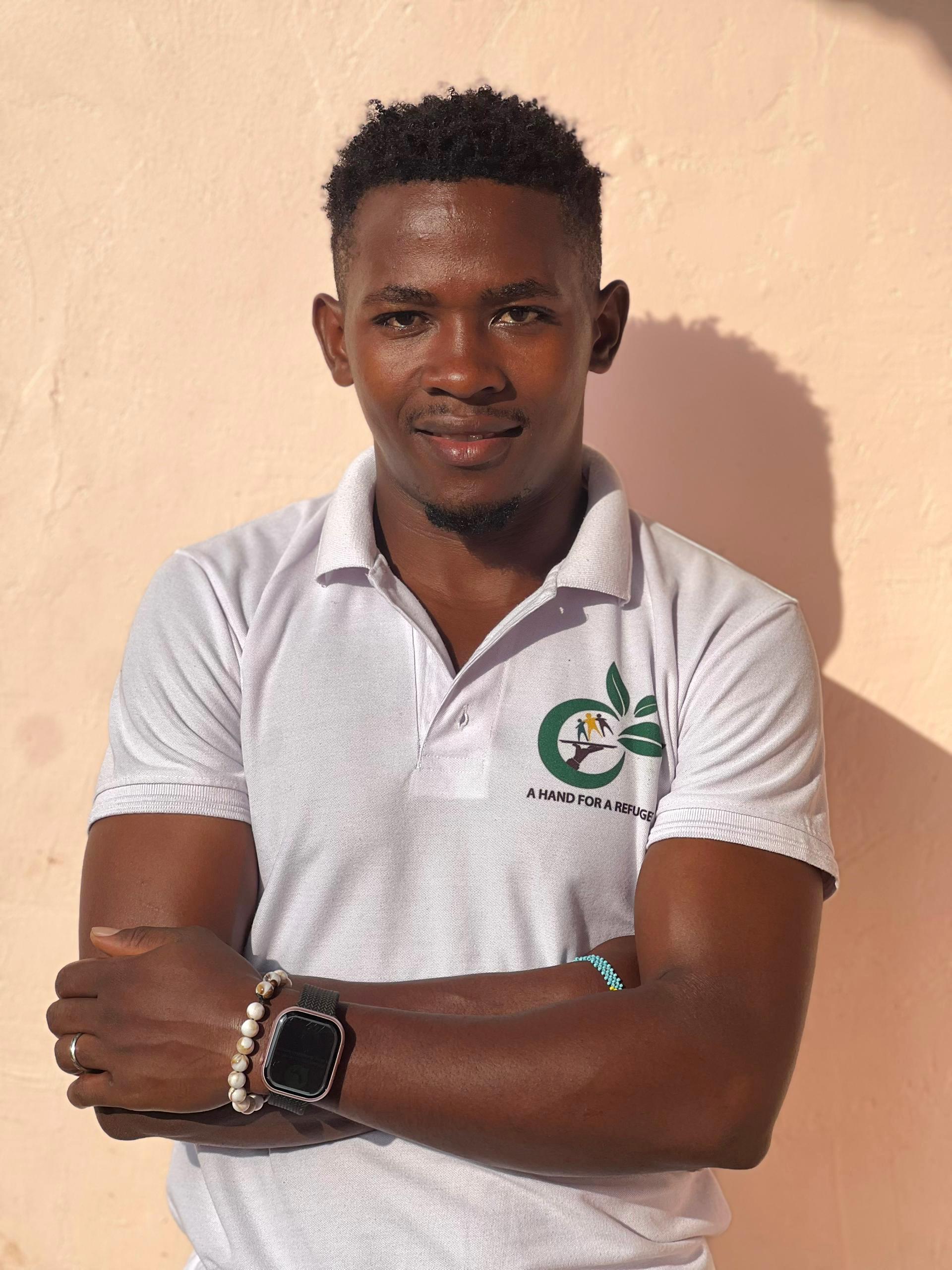
In recognition of International World Refugee Day this year, themed “solidarity with refugees,” the Mastercard Foundation Scholars Program at Makerere University proudly highlights the remarkable achievements of our Scholars and alumni with refugee backgrounds. These individuals have shown incredible resilience and determination, making a profound impact in their communities. Today, we are excited to share the inspiring story of Safali Libia, a Scholar-alumnus who, despite facing numerous challenges, successfully joined Makerere University through the Mastercard Foundation Scholarship, graduated, and actively contributes to his community at Kyangwali Refugee Settlement. He launched a transformative social venture project, A Hand for a Refugee, aimed at advancing the agriculture sector and enhancing livelihoods.
I was born in 1997 in Bunagana, Eastern Democratic Republic of Congo. In 2013, I fled to Uganda due to the armed conflict in my home country. My life was rebuilt in Kyangwali Refugee Settlement, where I found a new beginning.
Despite the challenges, I worked hard through school and was eventually admitted to Makerere University. There, I graduated with a Bachelor of Arts in Economics as a proud Mastercard Foundation Scholar. Accessing education in a peaceful environment changed the trajectory of my life. While at university, I decided to change the narrative about refugees. Too often, we are viewed through a lens of pity rather than potential. In my second year at Makerere, I allocated part of my scholarship stipends to support my family and also fund youth activities in the settlement. I mentored younger students, encouraged girls to stay in school, and advocated for inclusive development policies that recognise refugees as contributors, not burdens.
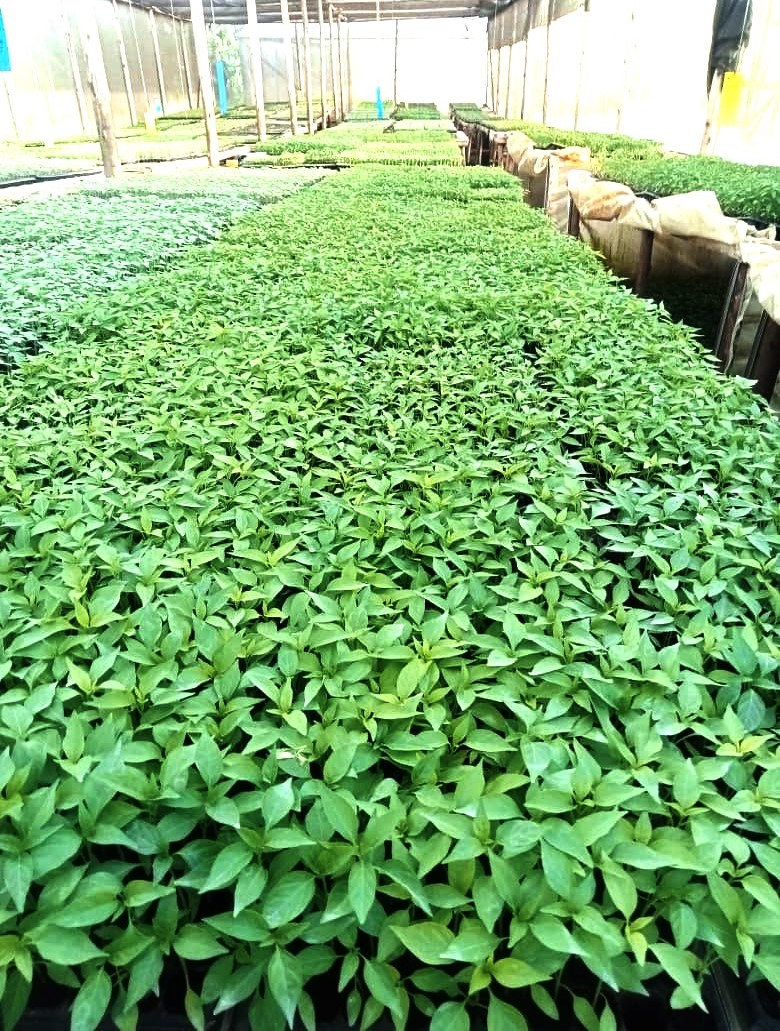
I also noticed how refugees have limited access to resources and opportunities. Many can only engage in small-scale agriculture or petty trade, yet they have dreams and abilities far beyond that. This realisation led me to co-found ‘A Hand for a Refugee’, a youth-led social enterprise driven by a profound understanding of the urgent need to strengthen the socio-economic well-being of refugee communities. We envision a future where refugees are not solely reliant on aid but are empowered towards self-reliance and can sustainably meet their diverse household needs, including ensuring access to education for their children, providing sufficient and nutritious food, securing safe drinking water, and fostering improved living conditions.
We focus on practical and sustainable solutions, providing comprehensive skilling and training in the two thematic areas of climate-smart agriculture livelihood for refugees and youth/women economic empowerment. Recognising the diverse experiences of refugee farmers, we provide support through comprehensive extension services and market linkage initiatives. These efforts are designed to enhance agricultural productivity, foster economic self-reliance, and promote sustainable livelihoods.
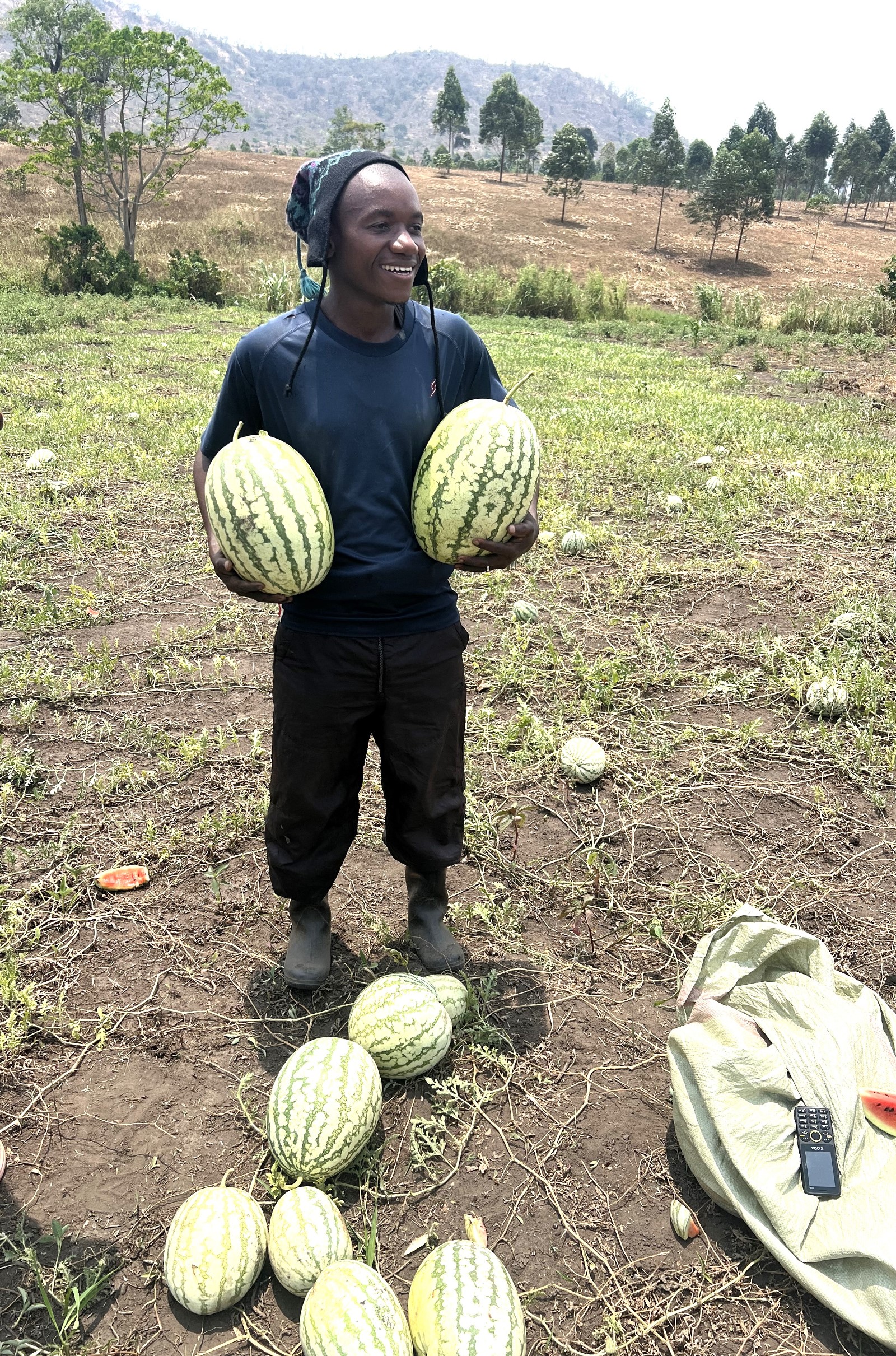
So far, we have trained fellow refugees in modern, climate-smart farming techniques and supported them in growing high-value crops like passion fruits, tomatoes, onions, and cabbages, which could thrive on small plots of land. Through these efforts, we strengthened food security and restored dignity. Our initiative has trained over 50 farmers, empowered women and youth, and demonstrated that refugee-led solutions are practical and sustainable. The Anzisha Prize and the Mastercard Foundation Scholars Program have recognised my work as a shining example of refugee-led innovation and a testament to whatrefugees can achieve when given the opportunity.
Today, I serve as the General Secretary of the Kyangwali Refugee-Led Organisations Umbrella. I encourage fellow refugee youth to take up leadership roles. We are not helpless; we are resourceful, determined, and resilient. All we need is trust, tools, and opportunity.
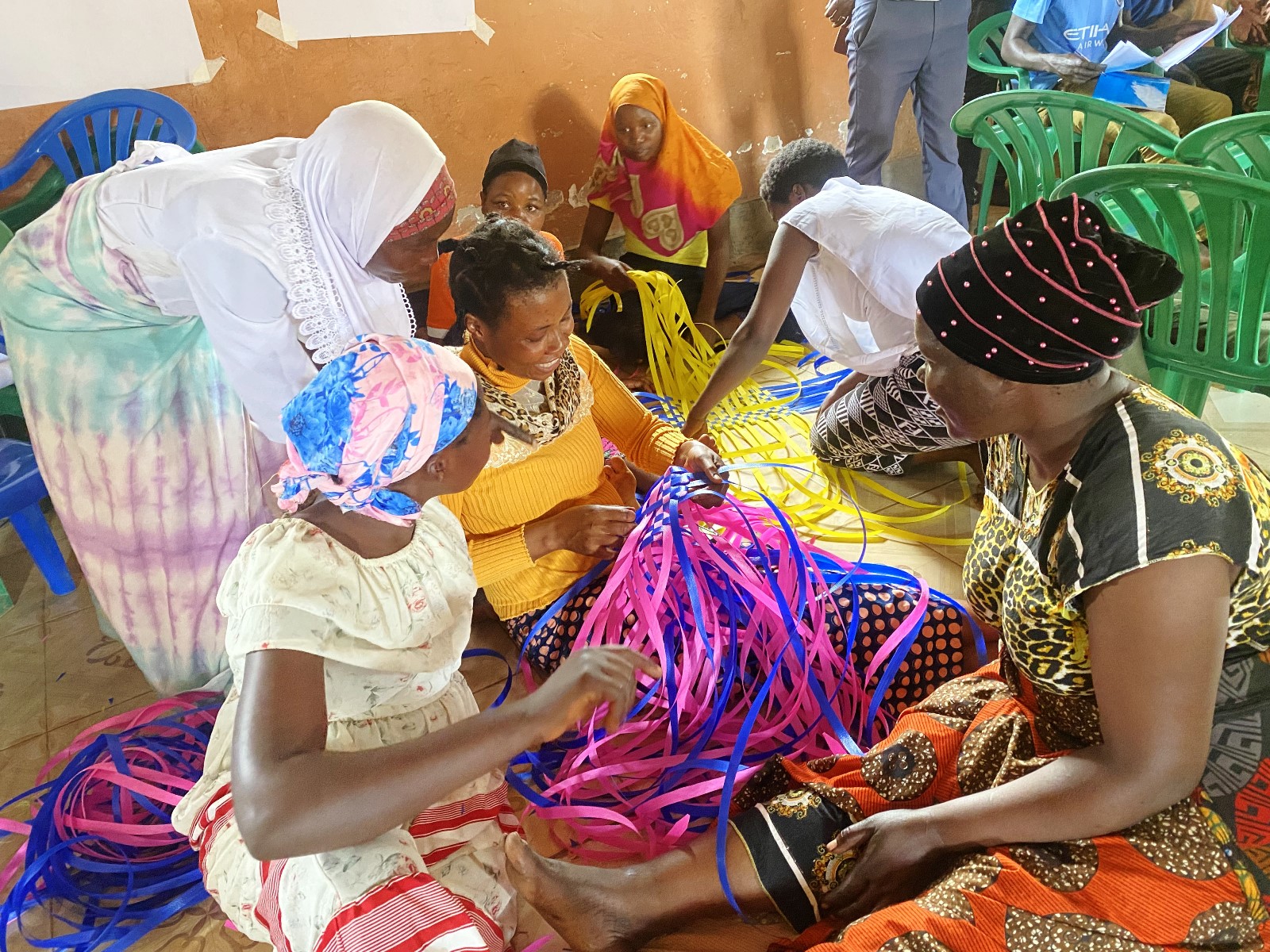
On this World Refugee Day, I call upon refugee youth not to wait for change but to be the change. We carry the solutions to our own problems. With education, courage, and unity, we can build more than survival; we can build thriving futures.
Let my journey remind the young people in different settlements that leadership, resilience, and hope can grow even in difficult conditions. I represent a new generation of refugees who do not see themselves as victims of circumstance but as architects of change, ready to rebuild their communities from the ground up. As we commemorate this day, let us celebrate young visionaries for surviving, thriving, and illuminating the way forward for millions of others displaced by conflict and crisis. In this struggle, I have planted seeds of hope, demonstrating that from within the refugee settlements of Africa can emerge the leaders of tomorrow. If I can do it, you can too.
General
Mastercard Foundation Scholars Program Alumni among top picks for global award
Published
7 months agoon
December 4, 2024By
Mak Editor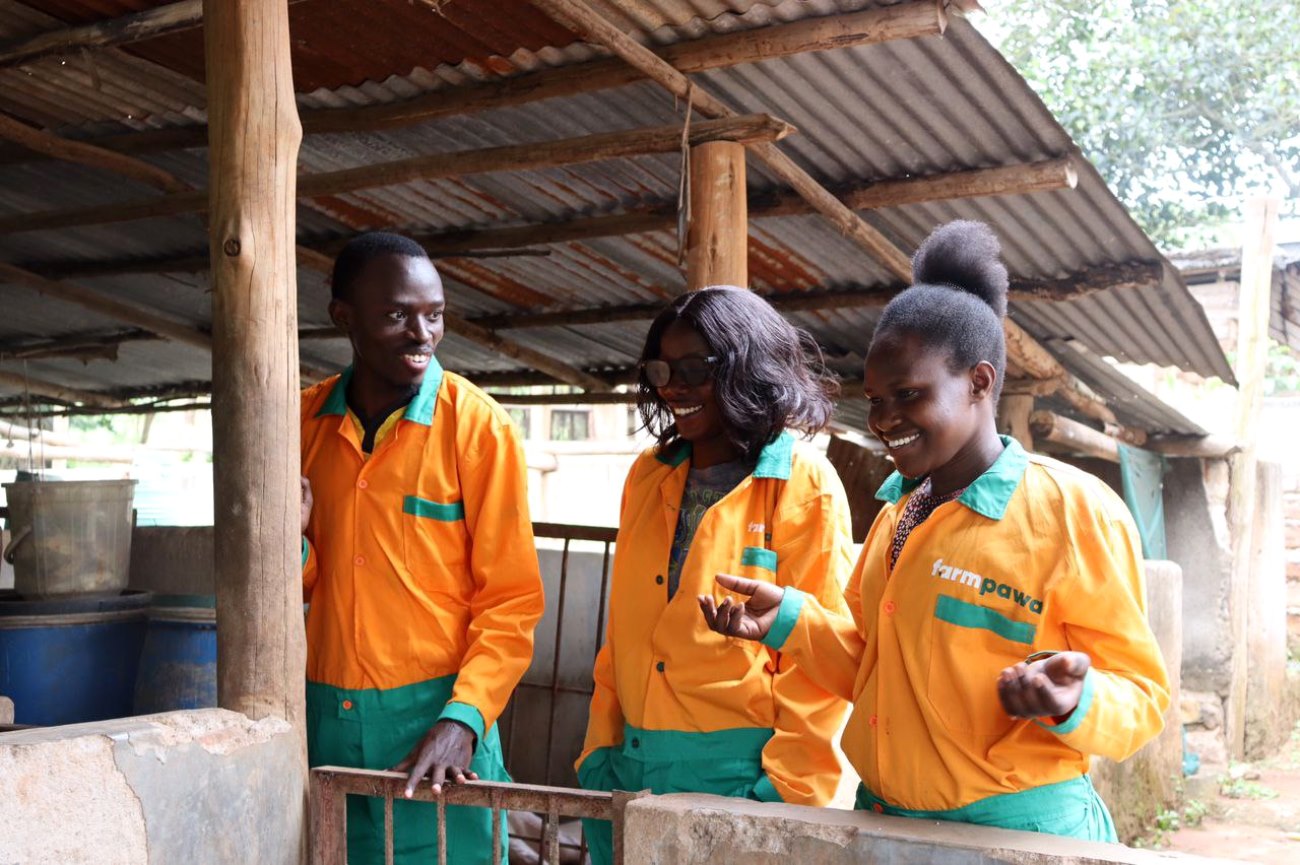
By Bernard Buteera & Carol Kasujja Adii
Moses Eteku, a Mastercard Foundation Scholars Program Alumni at Makerere University and the co-founder of a Kampala-based youth Fintech start-up Farmpawa, has been selected among the finalists for a prestigious global award for the project.
Farmpawa is a crowd-farming platform that connects investors with tangible farming assets, empowering farmers and driving sustainable agricultural growth.
The start-up had an opportunity to showcase its strategic plan, which, once realized, could benefit many young people from the region.
The contest, which sought to identify the most viable youth project with an economic impact on the community, attracted over 300 teams from 30 countries in Africa and the rest of the world.
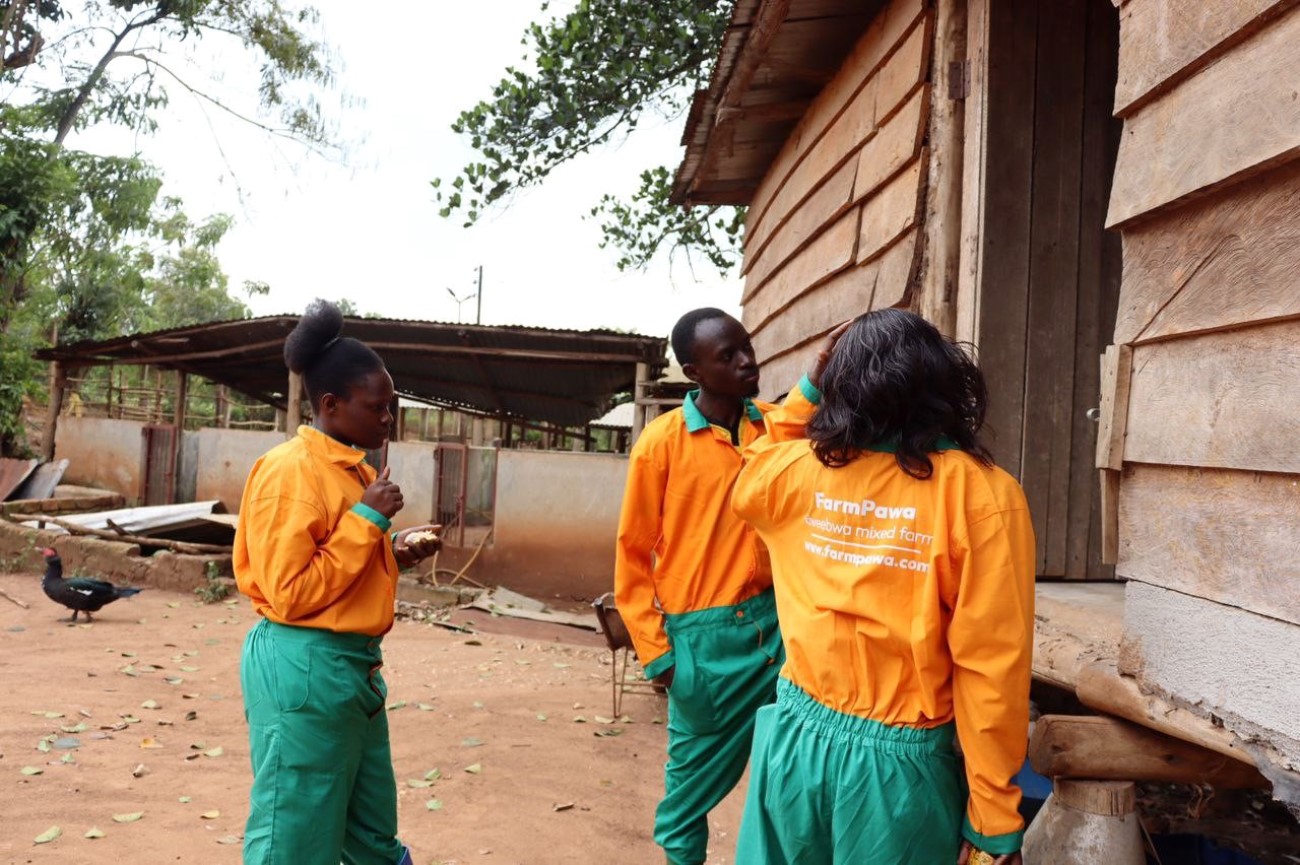
Moses Eteku, 27, founded Farmpawa with two partners, Medard Mutatina and Osborn Gumoshabe, in 2023. The project was selected as one of the ten semi-finalists in the Milken-Motsepe Prize in FinTech.
The Milken-Motsepe Prize in FinTech is designed to expand small businesses’ access to capital and financial services in emerging and frontier markets.
According to research, in 70% of emerging markets, SMEs are the primary source of formal employment, accounting for 70% of jobs.
Moses described the win as a miracle and an eye-opener, saying other participants presented world-class proposals.
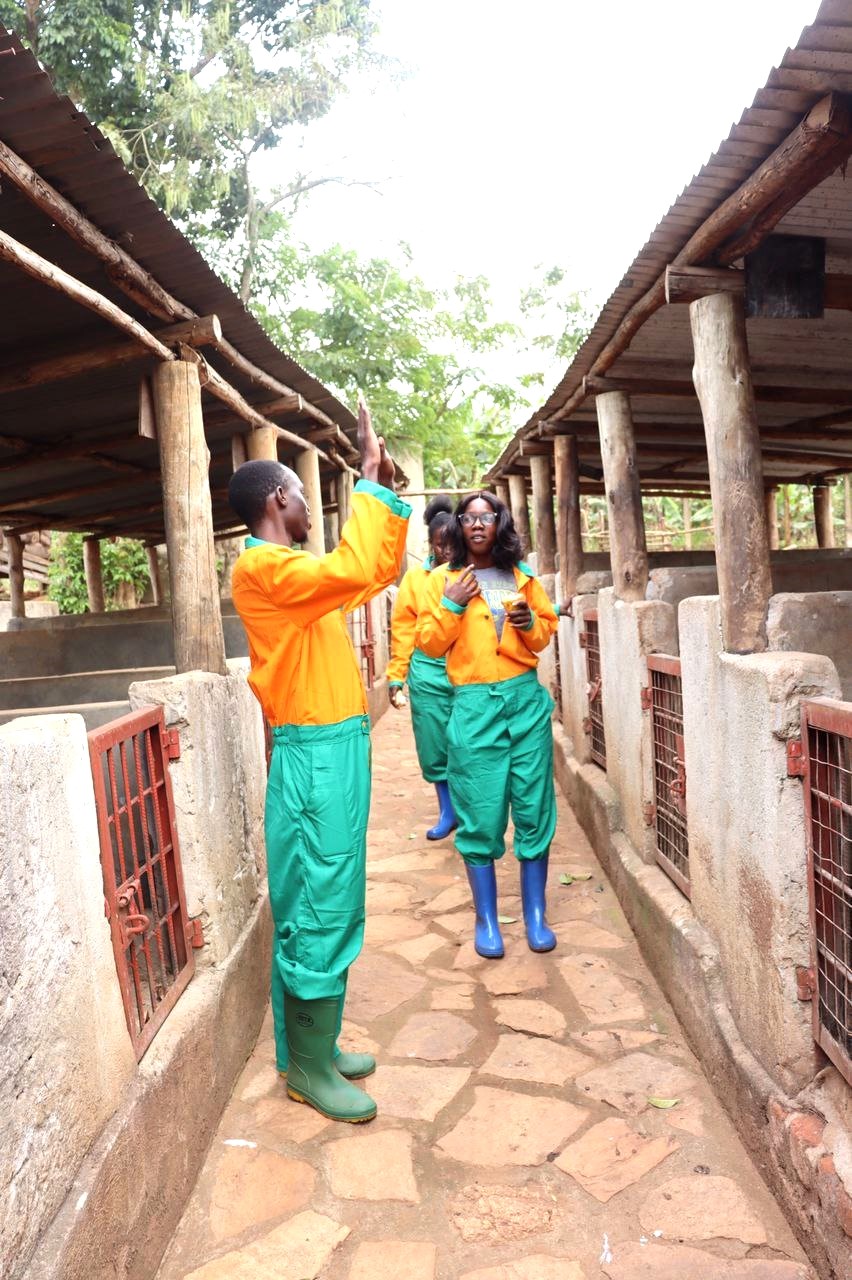
“Most of my competitors were far advanced. I could not imagine I would be selected,” he said with a smile during the interview.
With this fund, Moses and his partners, Medard and Osborn, envision a future where agriculture bridges the gap, reduces inequality, and transforms the lives of farmers and individuals across Uganda and beyond.
Semi-finalists will participate in an Innovation Showcase at the Milken Institute’s Middle East and Africa Summit in Abu Dhabi, UAE, on December 5 to 6, 2024.
Each semi-finalist team receives $100,000 in funding. Three teams will be selected to move on to the final round, where they will compete for the $1 million Grand Prize.
Who is Moses Eteku
Eteku, a Mastercard Foundation Scholars Program Alumni from Makerere University, graduated with a Bachelor of Science in Computer Engineering.
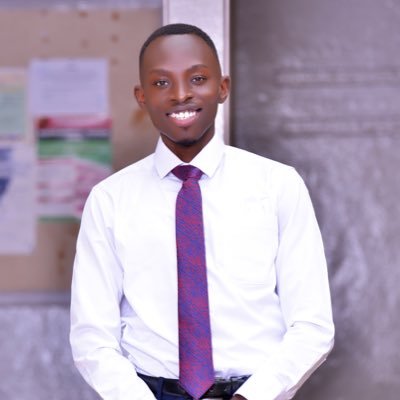
His passion for changing the community has led him to start several projects, including giving the youth a chance to showcase their talents and connect them with relevant organizations and companies.
While at the University, he developed an interest in managing software. He repaired his classmates’ laptops and earned some money. In his third year, he decided to learn another skill. He teamed up with other members and built business solutions. He developed applications that improved the operations of organisations such as Makerere University Hospital, where he worked on the MakRTI mobile application.
One of his significant achievements was developing the MakRTI App, an Android-based mobile application designed to promote reproductive health awareness and improve access to treatment for students at Makerere University. The app provided critical information about reproductive tract infections (RTIs) and facilitated access to healthcare services through appointments and direct communication with specialists.
He also developed an app for students to access the Uganda Museum. Instead of going to the museum and waiting in line to pay, Students would book online, which eases access. At the same time, students can remotely access study materials like archives while at home.
Even when he completed University, he continued using various projects to educate youth on emerging issues.
Among his most impactful initiatives is Kauntabook, a financial record-keeping app targeting SMEs and individuals. The app simplifies financial management by offering tools to track income, expenses, and other bookkeeping functions. With over 800 users, Kauntabook continues to evolve based on user feedback, reflecting Eteku’s commitment to creating user-centric solutions.
Starting Farmpawa
Farmpawa was born from a shared vision among Moses, Medard and Osborn: to empower smallholder farmers in Uganda. Medard, then a Makerere University Business School student, Suggested to Moses and interested him in an idea he had seen in South Africa.
“I researched about it, and we decided to team up and pursue the idea,” Eteku said.
Together, they created a platform that connects farmers with investors, unlocking opportunities for sustainable growth in rural communities.
They aim to make agricultural investment accessible to all, enabling local economies to develop and foster shared prosperity.
“Since the launch of Farmpawa, we have established strong connections between investors and farmers that have directly led to job creation, community development, and wealth generation,” Eteku asserted. They started the business with friends and family who trusted and invested.
Benefits
Initially needing more solid information technology skills, Moses Eteku is now an IT expert.
His opportunities to interact with the Company’s Chief Executive Officers have helped him to improve his entrepreneurship skills.
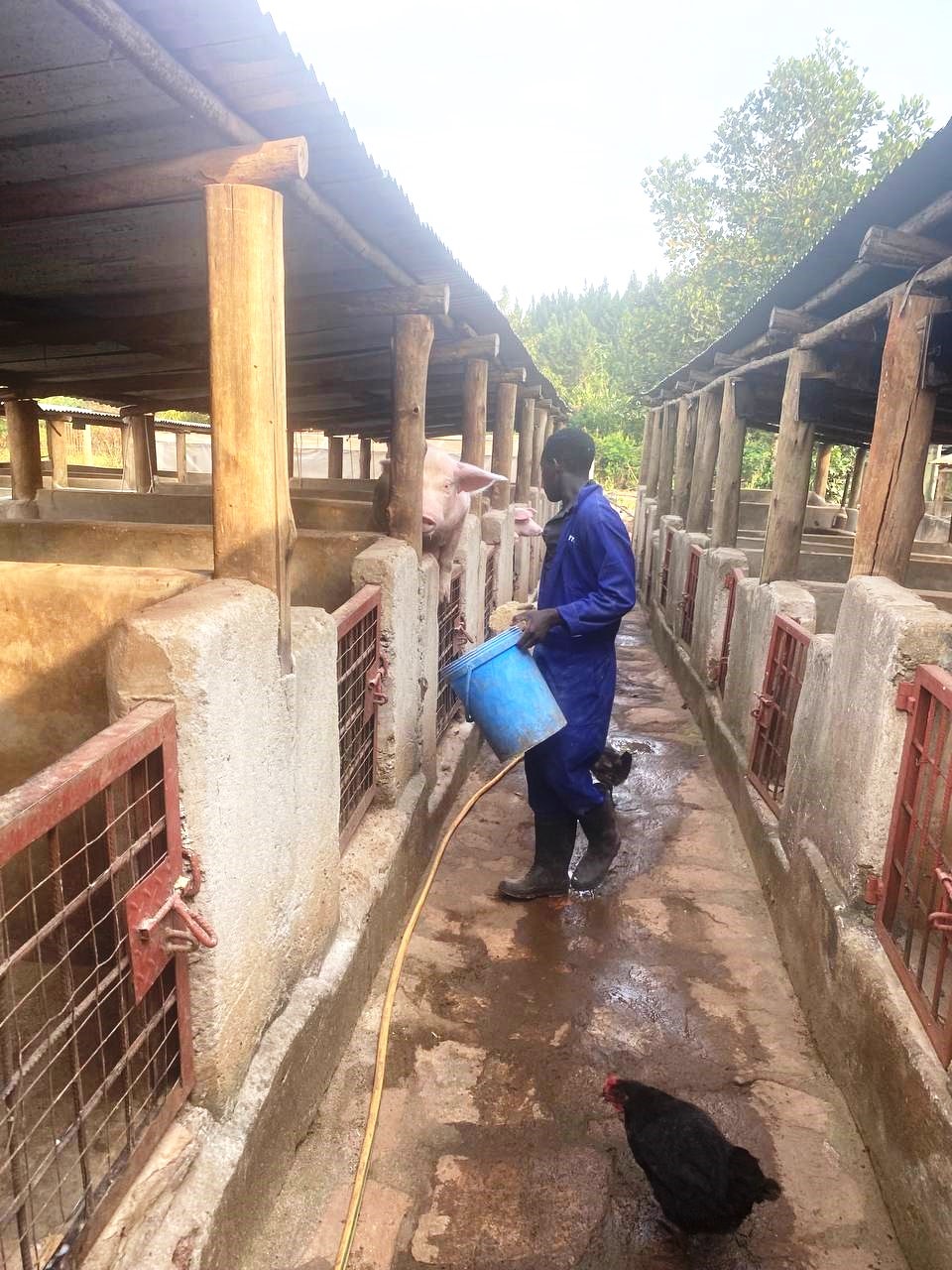
Farmpawa offers key benefits by empowering smallholder farmers with access to capital, enabling them to expand their operations and improve their livelihoods. It provides investors with easy and transparent access to agricultural investments, promoting job creation, community development, and sustainable agriculture while contributing to economic growth and food security.
How Farmpawa works
Farmpawa enables users to invest in real farming assets while empowering smallholder farmers. Users begin by creating an account and funding their wallet through mobile money or bank transfers. With funds in their wallet, they can explore and select farming projects or assets, such as livestock, and purchase portions as shares added to their investment portfolio.
The platform has a dashboard where users can receive regular updates on project progress and asset performance, track deposit history, and receive tailored financial advice through a knowledge section. It ensures a transparent and efficient investment process while providing valuable farming insights.
Bernard Buteera and Carol Kasujja Adii form the Communications and Public Relations Team at Mastercard Foundation Scholars Program, Makerere University.
Trending
-

 General3 days ago
General3 days agoMature Age Scheme Exam Results for 2025/2026
-

 General6 days ago
General6 days agoFreshers’ Joining Instructions 2025/2026
-

 General1 week ago
General1 week agoMastercard Foundation Board pays its inaugural visit to Makerere University
-

 General1 week ago
General1 week agoUVCF Makes Case for HEAC Programme
-

 Natural Sciences2 weeks ago
Natural Sciences2 weeks agoCoNAS Participates in the 2025 National Science Week Exhibition
